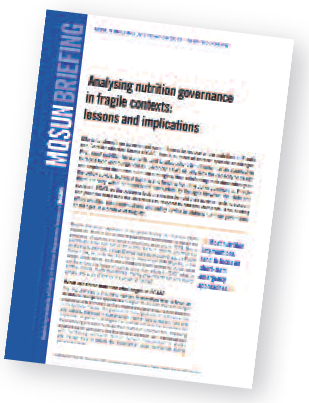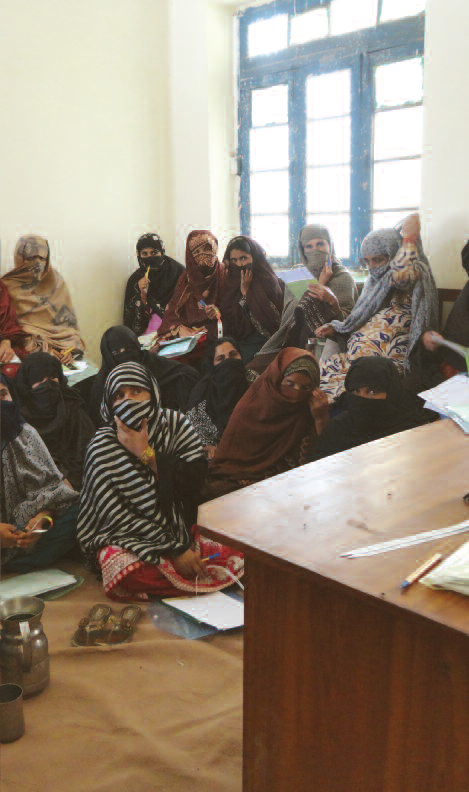Maximising the Quality of Scaling Up Nutrition Programmes Framework (MQSUN)
 Briefing 02, November 2013
Briefing 02, November 2013
Mejia Acosta, A. et al. Institute of Development Studies, Brighton.
Efforts to strengthen government commitment to reduce undernutrition in Fragile and Conflict Affected States (FCAS) face a number of context specific challenges. First, most nutrition investments tend to adopt short-term humanitarian approaches to tackle food and hunger crises. Secondly, FCAS usually lack the capacity to design and implement their own nutrition strategies, thus reinforcing their dependency on the policy advice, technical training and funding from the donor community. Thirdly, there are very weak or non-existent accountability linkages between the state and the society in FCAS, so that citizens lack the means to hold their governments to account and political elites lack the incentives to respond to citizens’ demands. This briefing reviews three specific situations (Niger, Pakistan and Ethiopia) and offers practical recommendations and policy advice to address nutrition governance challenges in a context of fragility.
 Policy recommendations:
Policy recommendations:
- National governments should evaluate existing nutrition initiatives and aim to orchestrate multiple nutrition responses under a single institutional framework or strategy.
 Donors operating in fragile and conflict affected situations should endorse emergency nutrition responses such as CMAM or blanket feeding that have the greatest potential for embedding preventive care. Cash transfers are another instrument that has greater long-term impact.
Donors operating in fragile and conflict affected situations should endorse emergency nutrition responses such as CMAM or blanket feeding that have the greatest potential for embedding preventive care. Cash transfers are another instrument that has greater long-term impact.- Multilateral and bilateral agencies should establish ways to combine and fund long-term nutrition programming through funds that are allocated on a short-term yearly basis with those that could be allocated through multiyear funding. Synchronizing funding cycles could open the door to an effective division of labour and sustained nutrition funding without undermining reporting requirements.
- Donors and country governments need to develop improved budget tracking devises to allow governments greater ownership over nutrition funding while ensuring accountability of donor contributions.
 Further research:
Further research:
- Work is needed to define and measure the capacity and motivation of the state and state actors to engage in effective nutrition programming.
- More work is needed to define and document how investments and strategies for reducing chronic malnutrition can prevent the long-term recurrence of acute malnutrition in FCAS and elsewhere. The impact of treating and preventing acute malnutrition on stunting needs to be documented and the policy and programme implications elaborated.
- Research is needed to understand how specific FCAS and food insecurity indicators affect nutrition indicators.
- Improve nutrition programme design by developing and using budget-tracking devices to identify the relationship between nutrition investment and nutrition outcomes in FCAS.

